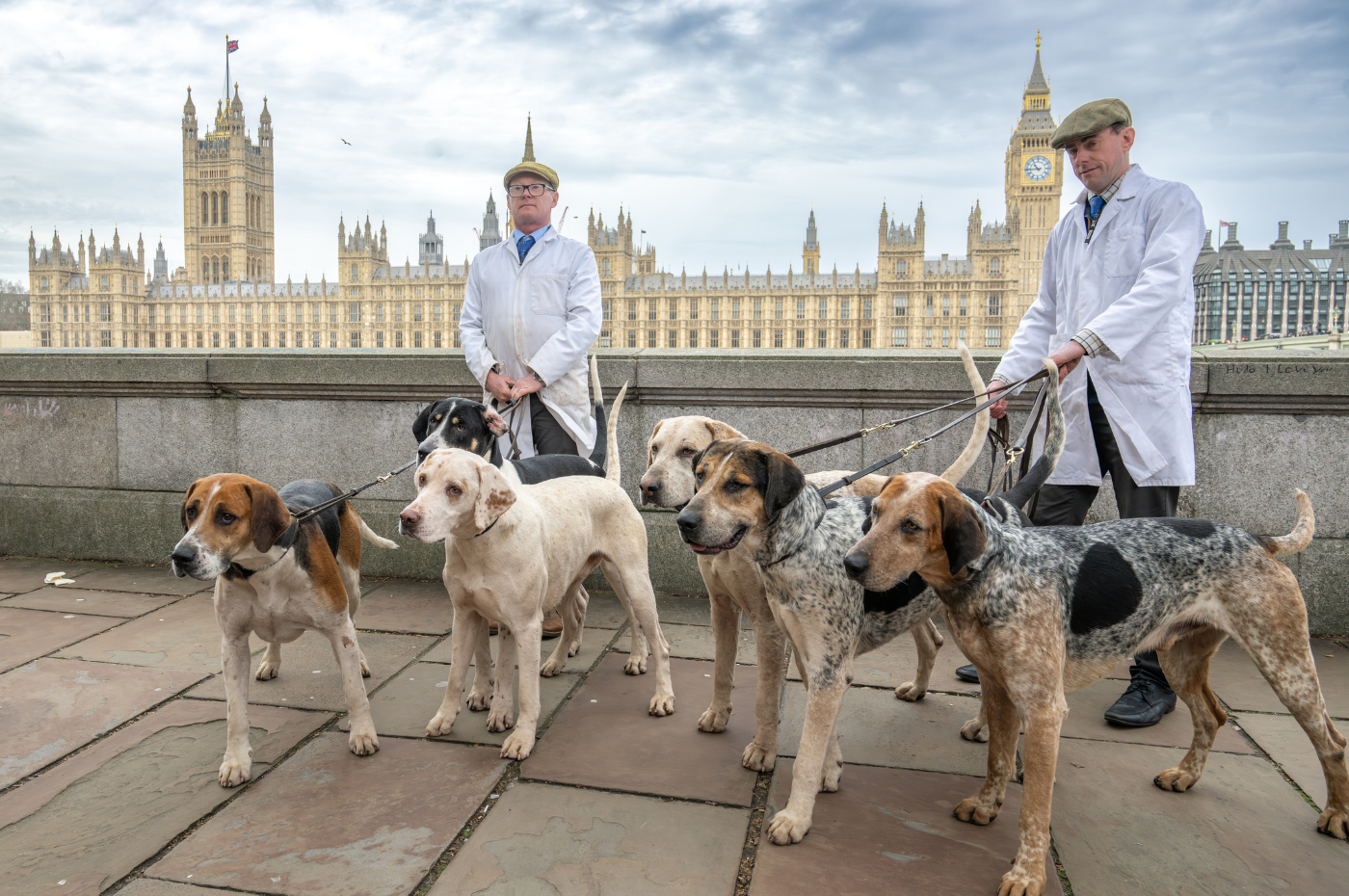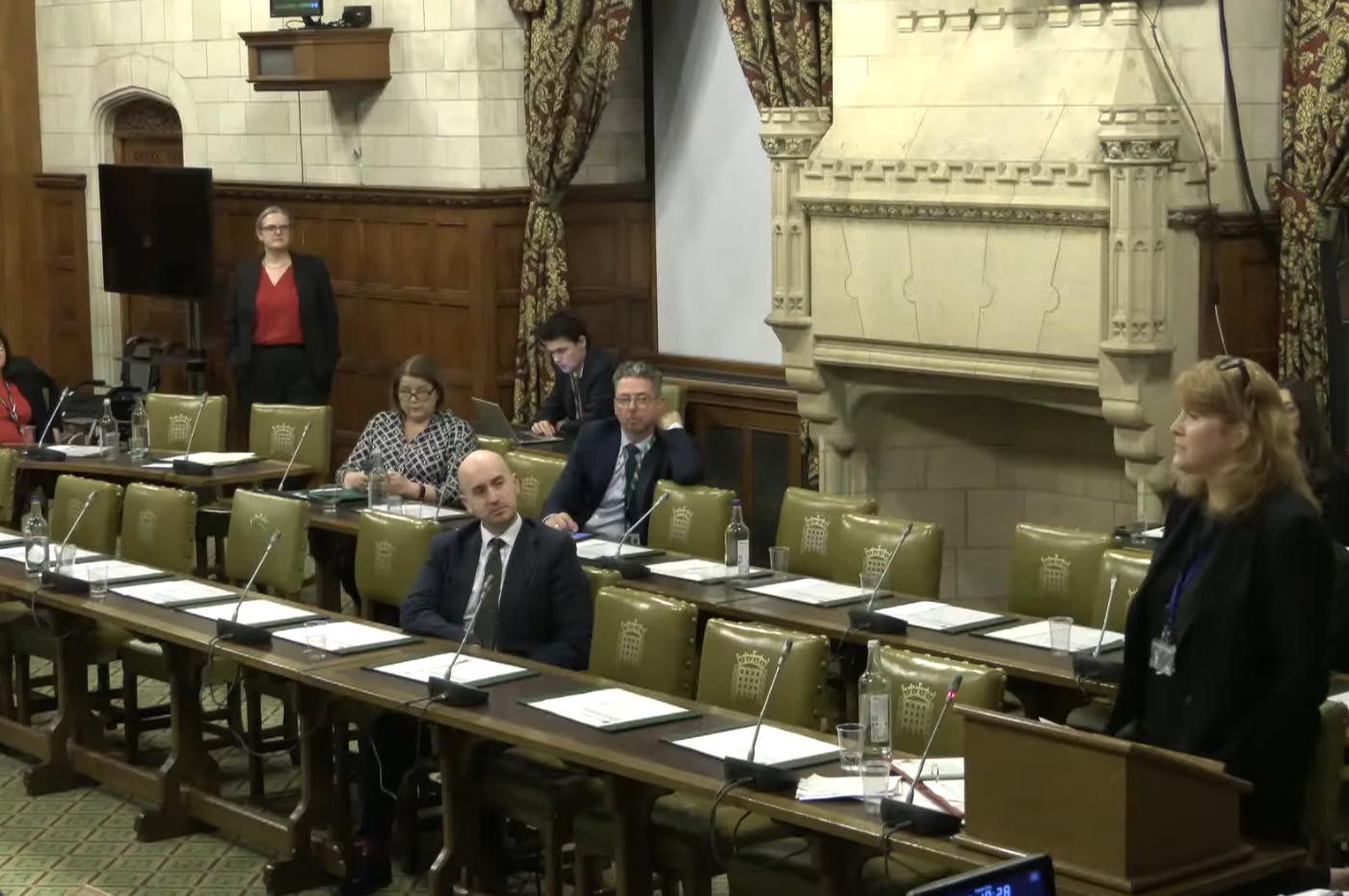Hounds in Town - hunting campaign raises awareness in London
Londoners of all ages showed their support last Friday, as hounds and hunt...
View Details
The Countryside Alliance has responded to a government consultation on the future of private prosecutions. We welcome proposals to bring bodies pursuing private prosecutions under a rigorous code of conduct but have argued that groups including the RSPCA should not be pursuing them in the first place.
The importance of separating the investigation of an alleged offence from the decision to prosecute has been recognised for over 40 years since the Crown Prosecution Service (CPS) was created following some serious miscarriages of justice. The police still investigate but it is now the CPS that reviews the evidence, decides whether a prosecution is in the public interest and takes any prosecution forward. However, in England and Wales (although not in Scotland), organisations and individuals can bring a private prosecution and in effect the investigator and prosecutor are the same. This is key to understanding how the Post Office Horizon scandal happened and why it was not uncovered sooner, but concerns about the use of private prosecutions, notably by the RSPCA, go back years.
Repeated inquiries have called for better oversight of private prosecutions and at last the government seems willing to act. The latest consultation on “the oversight and regulation of private prosecutors”, which closed on 8 May, is proposing a number of reforms to ensure greater transparency and accountability.
The Alliance responded to the consultation and generally welcomes the proposals. These include: a compulsory public register and code of conduct for private prosecutors; mandatory inspection for private prosecutors; and a system of accreditation. The government “considers that regulation of private prosecutors is essential to prevent miscarriages of justice and enhance public confidence in the criminal justice system”. It is not looking at private prosecutions between individuals, but only ones involving companies, charities and other bodies.
The proposed changes matter because where a large, well-funded organisation is prosecuting lone individuals there is what lawyers call an “inequality of arms”. This inequality is made worse by the fact that even when the defendant is successful their costs are not borne by the prosecutor, but more often than not by the taxpayer. As the House of Commons Justice Committee noted in 2020, the lack of financial consequences for an unsuccessful private prosecutor may increase the likelihood of the system being misused. The then Lord Chief Justice observed in 2014 that “the costs of private prosecution, whether successful or unsuccessful, are recoverable from the taxpayer; the use of private prosecutors will almost inevitably cost the State much more than the use of a State prosecutor, such as the CPS.” The Alliance has argued for a review of legislation on costs and an assumption that the defendant’s costs are awarded against private prosecutors when a prosecution fails.
The consultation is not just about the Post Office but also the use of private prosecution by other organisations including charities and, in particular, the RSPCA. Concerns over the RSPCA’s role as a prosecutor go back many years. Following a parliamentary debate in 2013, the then Attorney General suggested the RSPCA should appoint an independent reviewer of its prosecution function. The former Chief Inspector of the CPS Inspectorate, Stephen Wooler, was appointed and his report identified the key problems. The Wooler Report (September 2014) acknowledged that there is a conflict between the RSPCA’s role as prosecutor and its commercial and campaigning interests.
The anomalous situation of the RSPCA was picked up again by the Environment, Food and Rural Affairs Committee (EFRA) in 2016 and again by the Justice Committee in 2020. As the EFRA Committee noted, “the current model in England and Wales where the RSPCA brings private prosecutions alongside its investigative, campaigning and fundraising functions can never provide the necessary separation to ensure that there is no conflict, or perceived conflict, of interest. Nor does the Committee believe that this model is more efficient and effective than other parts of the UK”, such as Scotland where there is no right of private prosecution.
Welcome as the government’s proposed changes are, the fundamental question remains whether it is ever appropriate for charities and campaigning organisations to act as private prosecutors. Indeed, it is questionable whether the use of charitable funds can be in accordance with the duty of trustees, given that such prosecutions could be brought via the CPS.
The RSPCA is almost unique and all other non-governmental organisations which regularly used private prosecutions to enforce legislation before the CPS was established have ceased to do so. Two organisations, in very similar situations, are particularly relevant. The NSPCC was regularly involved in highly complex and extremely sensitive private prosecutions for child abuse, but it now works with the CPS and other authorities to investigate allegations and “supports CPS prosecutions. It retains the right to bring private prosecutions but has not done so for many years. The RSPB was another regular private prosecutor with specialist expertise in wildlife crime, but no longer does so despite also retaining that right. Instead it works closely with the police, the CPS, Procurators Fiscal and HM Revenue and Customs.
While the CPS often chooses not to prosecute elderly defendants, or those with mental health conditions or other disabilities, there are many examples where the RSPCA has ignored such considerations. It has prosecuted cases where the people and animals concerned would have been better served by the RSPCA responding with guidance and assistance. In Scotland, where private prosecution is not an option, there has been no suggestion that the Procurator Fiscal’s budget has been put under exceptional strain, or that animal welfare laws are enforced less effectively than in England and Wales. In fact, in 2021 the RSPCA decided to ‘step back’ from prosecutions and the then Chief Executive, Chris Sherwood, was right when he said: “We believe this responsibility should sit with the Crown Prosecution Service, which is a statutory public body with regulatory oversight”. So why is the RSPCA still bringing prosecutions?
Perhaps following this consultation animal welfare legislation will finally be treated like other laws: enforced by the independent CPS, not by a charity acting as animal welfare police with little transparency or accountability.

Londoners of all ages showed their support last Friday, as hounds and hunt...
View Details
A parliamentary debate yesterday (23 February) saw the government mount but the...
View Details
Following criticism from rural groups, Holyrood has U-turned on its decision to...
View Details